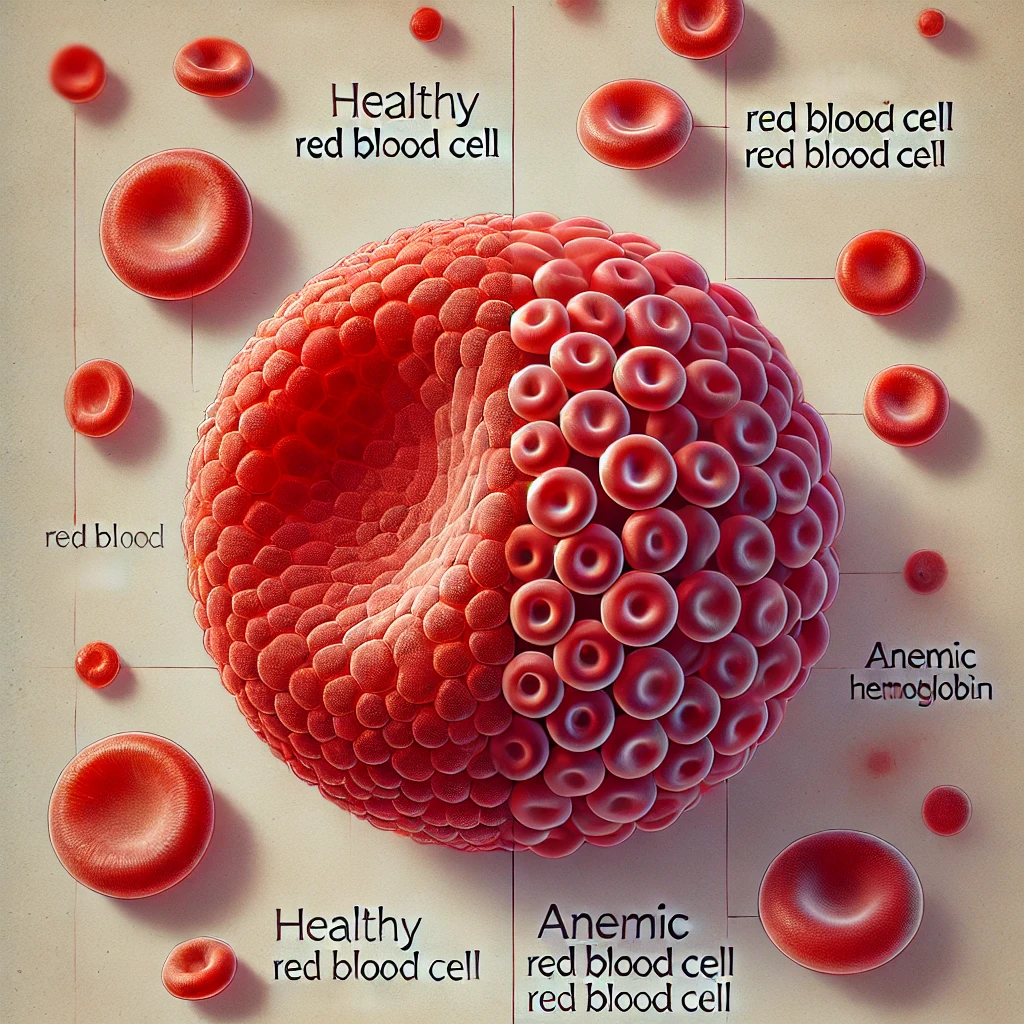Follow us and share.
Everything you need to know about preventing anemia: causes, symptoms, and treatments
The anemia Anemia is a common condition that occurs when the body doesn't have enough healthy red blood cells to carry oxygen to the tissues. This can cause a range of symptoms such as fatigue, weakness, and shortness of breath. Anemia can affect people of all ages and genders, and has various causes, from nutritional deficiencies to chronic illnesses. In this article, we'll explore the causes, symptoms, and best ways to prevent and treat anemia.
What is anemia?

Anemia occurs when the levels of hemoglobin (the protein in red blood cells that carries oxygen) are below normal. There are different types of anemia, the most common being:
- Iron deficiency anemia: The most common, caused by iron deficiency in the body.
- Pernicious anemia: Caused by vitamin B12 deficiency.
- Folic acid deficiency anemia: Related to lack of folate.
- Hemolytic anemia: It is due to the premature destruction of red blood cells.
- Aplastic anemia: It occurs when the bone marrow does not produce enough red blood cells.
Causes of anemia
The causes of anemia are varied and depend on the type of anemia. Below, we review some of the most common causes:
1. Iron deficiency
The iron deficiency anemia It is the result of a lack of iron in the body. Iron is essential for the production of hemoglobin, and its deficiency can be caused by:
- Diet poor in iron.
- Blood loss, whether due to heavy menstruation, hemorrhages, or ulcers.
- Difficulty absorbing iron due to intestinal diseases such as celiac disease.
2. Vitamin B12 and folate deficiency
The vitamin B12 and the folic acid They are essential for the production of red blood cells. A deficiency in these vitamins can be due to:
- Diets low in animal products (source of B12).
- Absorption problems in the intestine.
- Insufficient consumption of fruits and vegetables, which are rich in folic acid.
3. Chronic diseases
Diseases such as cancer, the kidney disease and chronic inflammatory diseases can interfere with red blood cell production.
4. Hereditary factors
Diseases such as sickle cell anemia wave thalassemia They are hereditary and affect the production or shape of red blood cells.

Symptoms of anemia
Symptoms of anemia can vary depending on its cause and severity, but the most common include:
- Extreme fatigue or weakness.
- Difficulty breathing, especially when exercising.
- Dizziness or lightheadedness.
- Pallor on the skin.
- Rapid heartbeat or irregular.
- Headache.
- Cold hands and feet.
If you experience any of these symptoms, it is important to see a doctor for a proper diagnosis.
Treatments for anemia
Treatment for anemia depends on its underlying cause, but generally involves dietary changes, supplements, and, in more severe cases, medical procedures.
1. Iron supplements
In the case of iron deficiency anemia, they are usually prescribed iron supplements to increase levels of this mineral in the body. These supplements should be taken under medical supervision, as excess iron can cause side effects.
2. Vitamin B12 and folic acid supplements
If the anemia is caused by a deficiency of vitamin B12 or folate, oral supplements or injections may be prescribed. vitamin B12Increasing the consumption of foods rich in these vitamins is also essential.
3. Changes in diet
A diet rich in iron, vitamin B12 and folic acid It is essential for preventing and treating anemia. Recommended foods include:
- Foods rich in iron: Red meats, spinach, lentils, beans, tofu and fortified cereals.
- Foods rich in vitamin B12: Fish, meat, dairy products and eggs.
- Foods rich in folic acid: Citrus fruits, green leafy vegetables, beans and whole grains.
4. Medical treatments
In severe cases of anemia, such as aplastic anemia wave hemolytic anemia, more intensive medical treatment may be necessary, which could include:
- Blood transfusions to increase the number of red blood cells.
- Medications to suppress the immune system in cases of hemolytic anemia.
- Bone marrow transplant in cases of severe aplastic anemia.
Prevention of anemia
There are several preventative measures you can take to reduce your risk of developing anemia:
1. Eat a balanced diet
Consume one diet rich in iron, vitamins and minerals It's crucial to prevent anemia. Be sure to include foods rich in iron, vitamin B12, and folic acid in your daily diet.
2. Prenatal supplements
Pregnant women are at greater risk of developing anemia, so it is important that they take prenatal supplements containing iron and folic acid, as recommended by your doctor.
3. Control chronic diseases
If you suffer from chronic diseases such as kidney disease or inflammatory diseases, it is essential to control these health problems to prevent anemia.
4. Regular medical check-ups
If you have risk factors for anemia, such as heavy periods, family history, or nutrient absorption problems, it is important to perform regular medical checkups and control hemoglobin levels.
Conclusion: Keep your health under control
Anemia is a common condition, but it can be prevented and effectively treated if addressed promptly. A healthy diet, supplements when necessary, and treatment of underlying conditions are key to maintaining hemoglobin levels within healthy ranges. If you experience symptoms of anemia, do not hesitate to see your doctor for a proper diagnosis and treatment.
Remember, prevention begins with good eating habits and overall health care. Take control today and take care of your well-being!



